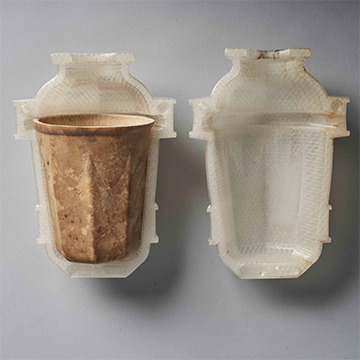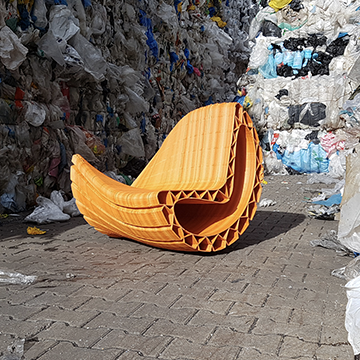With Earth Day fast approaching, we’re investigating the 3D printing and additive manufacturing industry to discover the latest trends in going green and promoting better environmental responsibility through this innovative technology!
A significant environmental issue in recent years has been the overuse of single-use plastics, which not only contaminate waterways and add to our growing landfills, but also contribute to CO2 emissions and global warming. Some particularly vigilant individuals are striving to address this issue by living zero-waste lifestyles, in which they entirely cut out single-use plastics and other waste. Crème, a Brooklyn-based design firm, is seeking to help people reduce their waste in a less extreme way, by first reducing their reliance on traditional to-go cups, which are often lined in unsustainable plastic. Taking inspiration from the Japanese practice of growing square watermelons, Crème is utilizing 3D-printed molds to force gourds into particular shapes, which, once dried, serve as compostable cups. The printed molds can be used again and again for continued production, and could someday be created from biodegradable or compostable filament as well, which would make this method of single-use cup production particularly sustainable and environmentally-friendly.
Speaking of alternative 3D printing materials, a team of researchers from Kaunas University of Technology (KTU) and Vilnius University, Lithuania have been working on utilizing plant-based materials for 3D printing, namely, they proved that a material utilizing soybean oil (acrylated epoxidized soybean oil [AESO]) was a usable and renewable material for printing in a stereolithography-style manner. According to their study, the team discovered that natural oils are one of the best alternatives for petroleum-derived resins “due to their richness in double bonds which can be polymerized or converted to other functional groups, biodegradability and renewability.”
Recycling plastic objects into new 3D printer filament is also being explored more fully in programs like Print Your City. According to their website, Print Your City “uses large scale 3D printing to transform the plastic waste of cities into meaningful applications for the built environment.” This transformation includes utilizing locally-used plastics that would otherwise ending up in a landfill to reproduce printer filament, which is then used to create customized benches for use around cities. The project is meant to show people the design flaw of using plastic, namely that it is designed to last forever, but our single-use culture results in literal tons of plastic waste.
ProtoCAM is always working towards implementing new methods to better contribute to a healthier environment and future. We exercise responsible disposal of materials and recycle whenever we can. We use sustainable packing materials and are even working towards ISO 14001 certification. Learn more about everything we’re doing to sustain a positive environmental impact in our article on “going green” in the industry!


